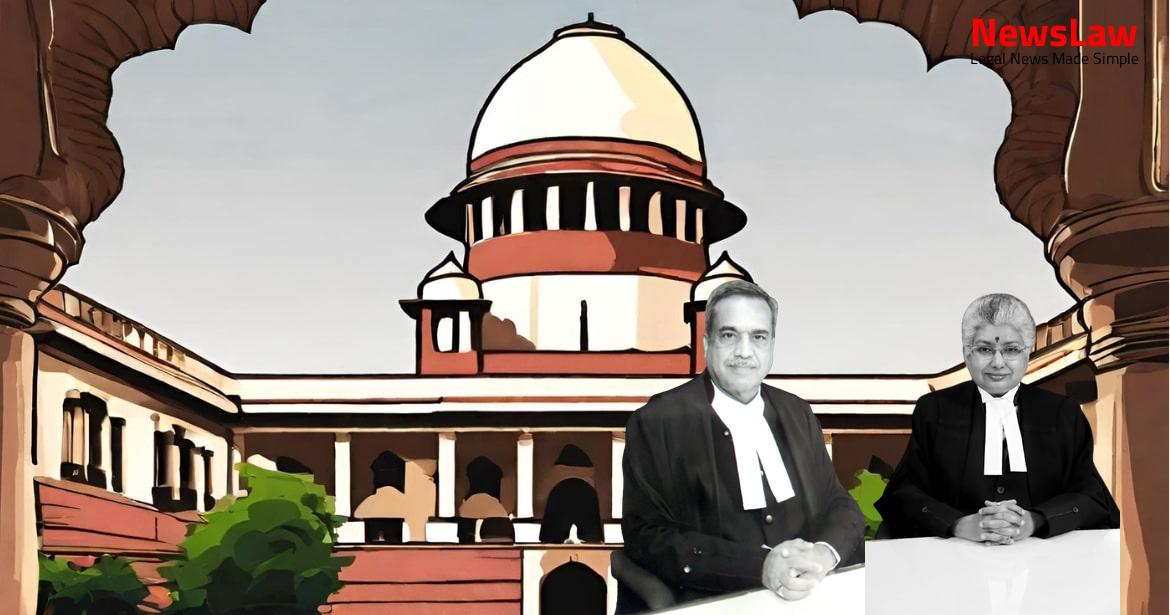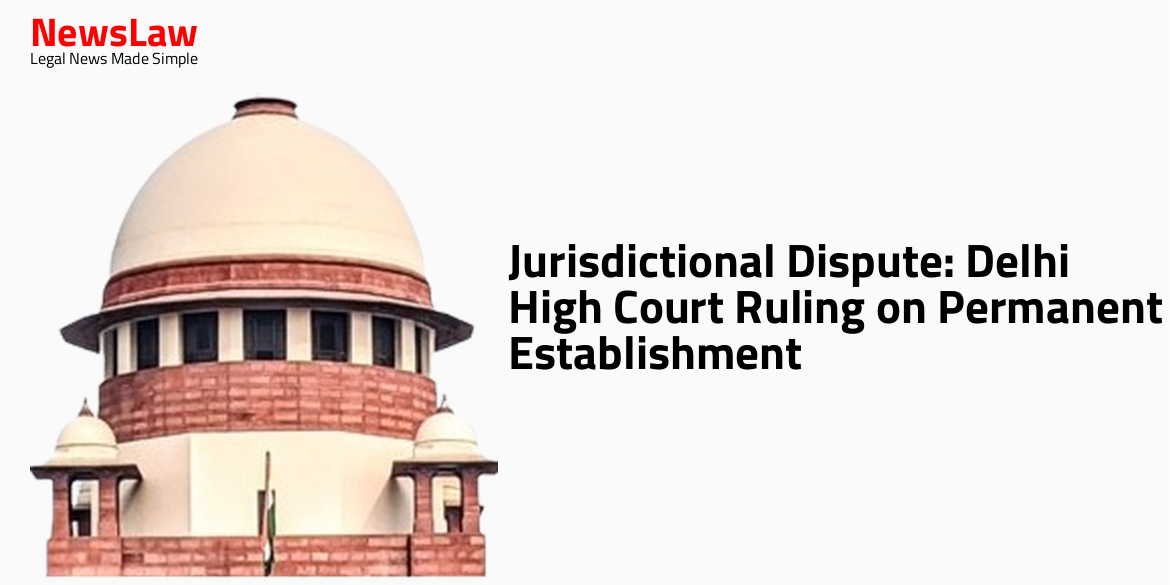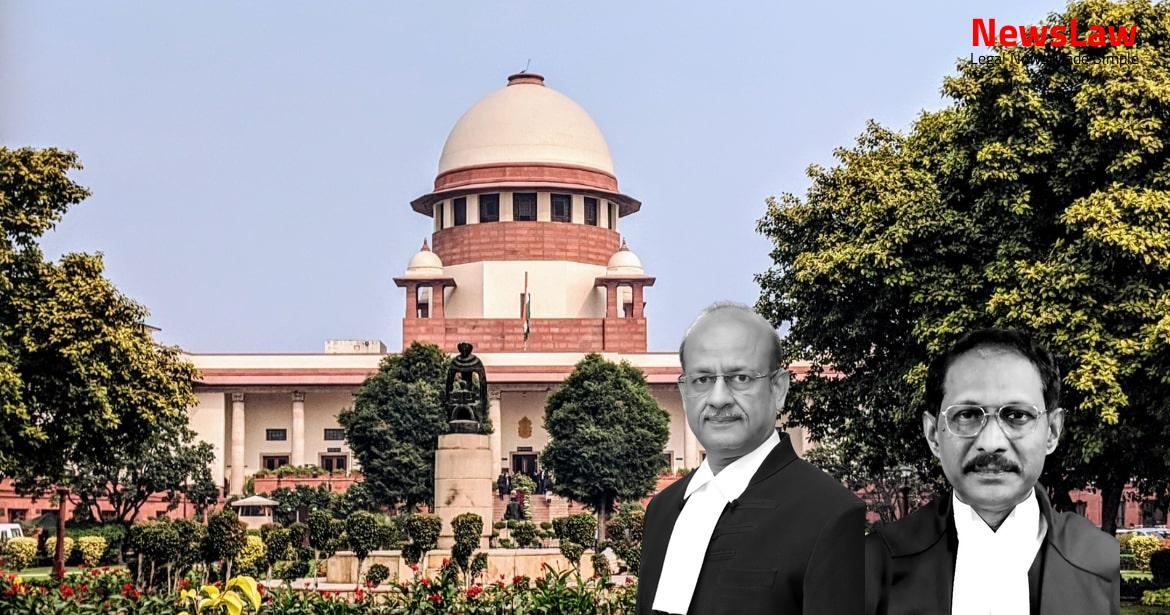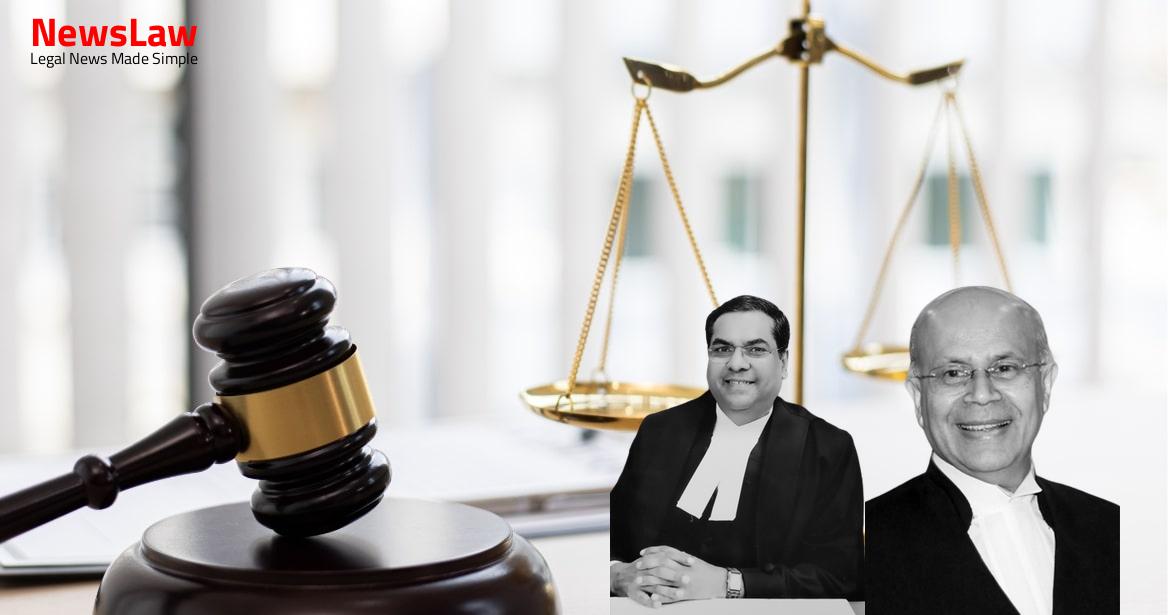Delving into the realm of disciplinary actions and judicial interference, this case presents a complex scenario where the High Court intervened in the punishment imposed by the Disciplinary Authority. The central question revolves around the appropriateness of judicial interference when assessing the proportionality of the punishment in disciplinary matters. Let’s unravel the legal intricacies and considerations in this fascinating case.
Facts
- The petitioner is aggrieved by the judgement and order of the High Court partially allowing the writ petition of the respondent.
- The High Court directed the petitioner to reinstate the original writ petitioner without back wages and benefits, substituting the punishment of dismissal imposed by the Disciplinary Authority.
- The respondent, who was initially appointed as a casual employee in 1982, was found guilty of two charges by the Inquiry Officer.
- The Disciplinary Authority, after considering the gravity of the misconduct, imposed the punishment of dismissal from services.
- The employer, Indian Oil Corporation Ltd., has filed the present appeal against the High Court’s decision.
- The original writ petitioner claimed to have passed SSLC from Karnataka Secondary Education Board in April 1986.
- A complaint was received in 2003 alleging that the SSLC submitted by the petitioner was false and forged.
- The examination of records revealed that the SSLC belonged to someone else, not the petitioner.
- A departmental inquiry was initiated against the petitioner.
- The petitioner claimed that the original SSLC was misplaced.
- The petitioner was acquitted by the Criminal Court due to lack of evidence of the original SSLC.
- The petitioner was advised to obtain a duplicate copy of the SSLC, but he continued to evade submission.
- The petitioner was charged with willful insubordination and giving false information.
- The petitioner did not submit the original or duplicate SSLC despite repeated requests.
Also Read: Ruling on Circumstantial Evidence in Murder Case
Issue
- The issue for consideration is whether the High Court is justified in interfering with the conscious decision taken by the Disciplinary Authority during the imposition of the dismissal punishment.
- The main contention revolves around the observation that the order of punishment of dismissal from service is disproportionate to the misconduct proved.
- This question is crucial in determining the extent of judicial intervention in disciplinary actions by the authorities.
- The court will need to assess the circumstances of the case to make a decision regarding the appropriateness of the High Court’s interference.
Also Read: Challenging Legal Presumptions in Negotiable Instrument Cases
Arguments
- The petitioner, through their counsel, argued that the High Court erred in interfering with the punishment imposed by the Disciplinary Authority, as the misconduct of producing a fake/forged SSLC certificate was a serious offense of dishonesty.
- It was emphasized that the certificate was submitted for record purposes only, with no intention to deceitfully secure a job or promotion.
- The petitioner’s acquittal by the Criminal Court, good service record, and absence of prescribed minimum qualifications or age limits for the job were highlighted as factors supporting a lenient view on the punishment.
- The High Court’s observation that the punishment of dismissal was disproportionate was challenged, as the disciplinary action was justified based on the gravity of the misconduct.
- The argument also included that denying back wages and promotion by the High Court was not a sufficient form of punishment, especially considering the respondent’s service at Reliance Industries during the interregnum period.
- The respondent had an unblemished and good service record.
- The High Court interfered with the order of punishment imposed by the Disciplinary Authority and ordered reinstatement without back wages and promotion.
- The original writ petitioner admitted guilt of producing a fake/forge certificate with the assurance of leniency in punishment.
- The respondent/original writ petitioner has been acquitted by the Criminal Court for offenses under Sections 468 and 471 IPC related to the fake SSLC produced by him.
Also Read: Legal Analysis Critique in High Court’s Quashing Order
Analysis
- Limited judicial review available for interference with punishment imposed by disciplinary authority.
- Court cannot substitute its own conclusion on penalty unless penalty is shocking to the conscience of the court.
- Doctrine of equality in punishment in cases of co-delinquents with identical charges or more serious charges.
- High Court ordered for reinstatement without back wages based on admission by original writ petitioner.
- Original writ petitioner produced fake/forged certificate resulting in dismissal from service.
- Original writ petitioner avoided obtaining duplicate SSLC despite repeated requests, revealing malafide intention.
- High Court’s lack of specific reasoning on shockingly disproportionate punishment in its order.
- Court’s reluctance to interfere with disciplinary authority’s penalty unless shockingly disproportionate or procedural irregularity.
- Fake/forged certificate production raises trust issues for employer.
- Dismissal from service justified even if acquitted by Criminal Court for same offences related to certificate.
- The quantum of punishment in disciplinary matters is primarily for the disciplinary authority to order
- The jurisdiction of the High Courts under Article 226 of the Constitution or of the Administrative Tribunals is limited
- The application of ‘Wednesbury principles’ is crucial when reviewing disciplinary actions
- Disciplinary and appellate authorities have the exclusive power to consider evidence and maintain discipline
- The courts cannot assume the function of disciplinary/departmental authorities in deciding the quantum of punishment
- High Courts/Tribunals can intervene if the punishment imposed shocks the conscience
- High Courts/Tribunals can direct reconsideration of penalties or impose punishment in rare and exceptional cases with valid reasons
- The Disciplinary Authority’s decision to dismiss the employee for producing a fake and false SSLC Certificate was justified.
- The High Court overstepped its jurisdiction by interfering with the punishment imposed by the Disciplinary Authority.
- The concession made by the writ petitioner cannot be considered a genuine concession in this case.
Decision
- The order dismissing the original writ petitioner from service on proven misconduct is restored
- The High Court’s decision to interfere with the punishment imposed by the Disciplinary Authority is quashed
- Reinstatement without back wages and other benefits is not granted
Case Title: M/S INDIAN OIL CORPORATION LTD Vs. RAJENDRA D. HARMALKAR (2022 INSC 459)
Case Number: C.A. No.-002911-002911 / 2022



